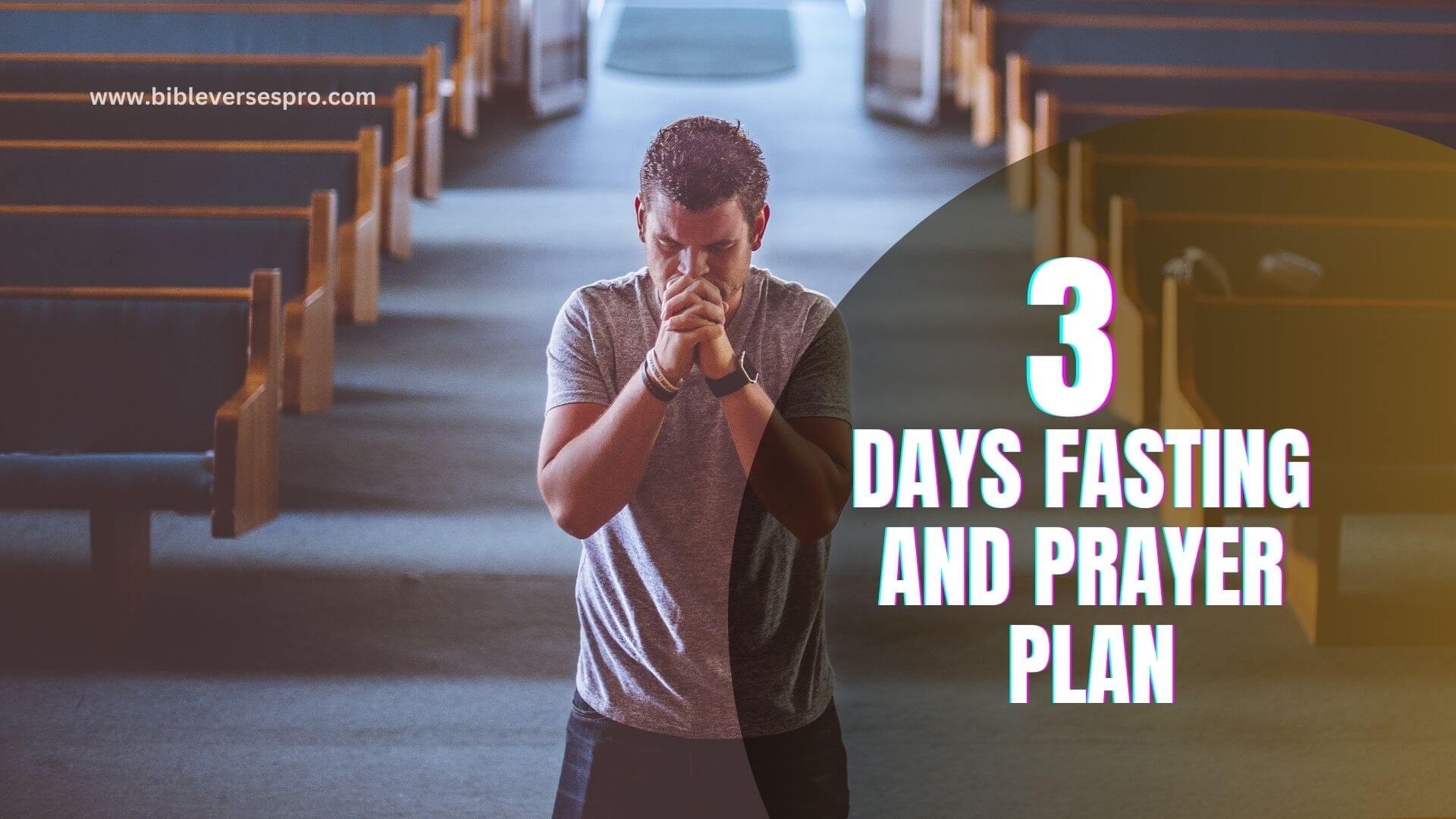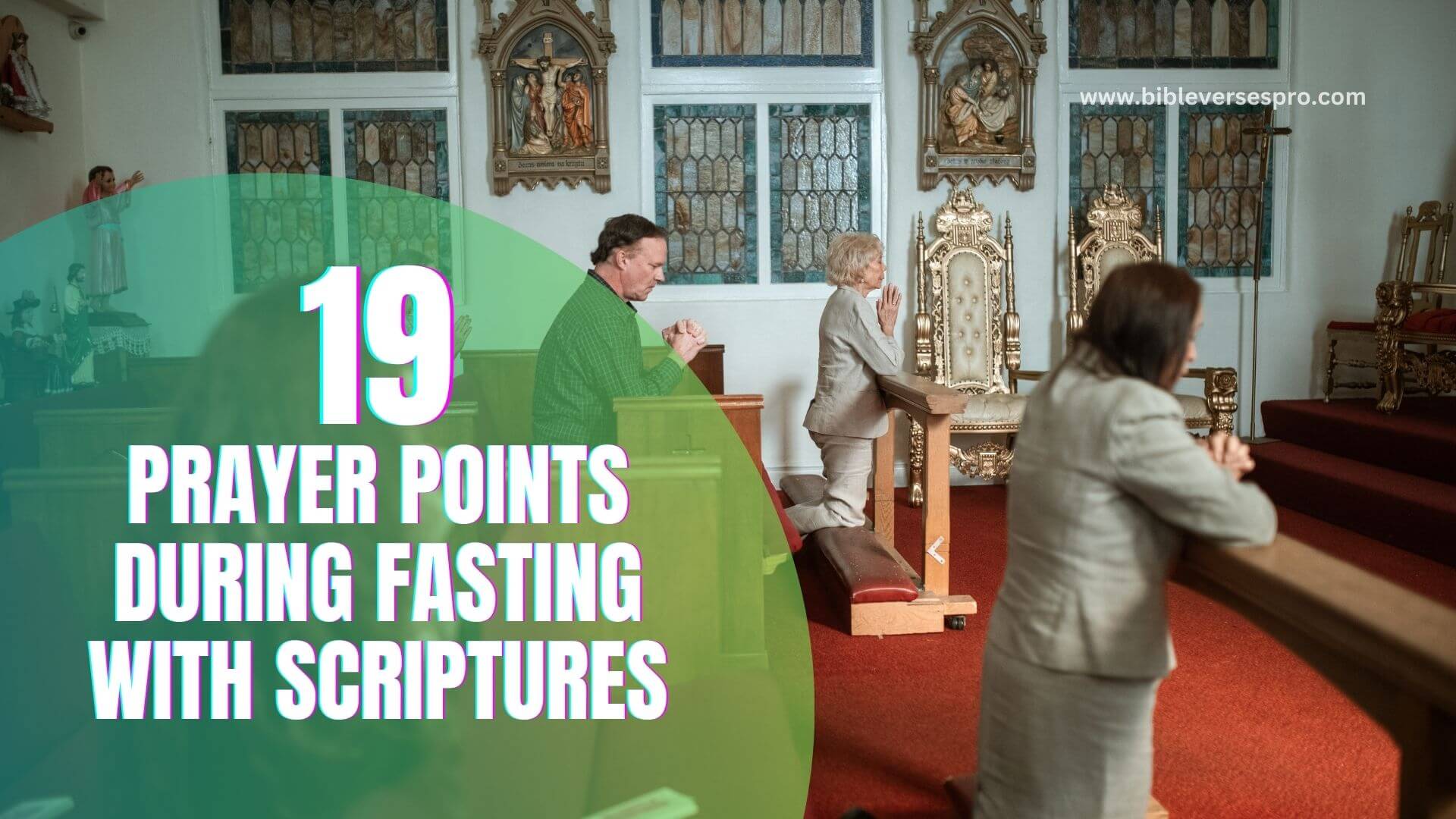In the world of Christianity, prayer is a powerful and essential tool for connecting with God, seeking His guidance, and interceding on behalf of others.
Intercession prayers, in particular, hold a special place in the hearts of believers as they involve standing in the gap for someone else, fervently seeking God’s intervention in their lives.
Throughout the Bible, we find numerous examples of intercession prayers that teach us valuable lessons about faith, compassion, and the importance of lifting others up in prayer.
In this article, we will explore 11 intercession prayers in the Bible, each with its unique significance and lessons to impart.
Intercession Prayers In The Bible
The Bible is rich with examples of intercession where individuals stand in the gap, pleading with God on behalf of others.
These intercessions reveal deep insights into the character of God and the heart of the intercessor, providing lessons and relevance for our lives today.
1. Abraham’s Intercession for Sodom and Gomorrah
One of the earliest instances of intercession in the Bible can be found in Genesis 18:16-33 when Abraham interceded with God on behalf of the sinful cities of Sodom and Gomorrah.
Abraham’s plea for mercy and his negotiation with God reveals the power of intercession in appealing to God’s compassion and justice.
Prayer and Commentary
Abraham’s intercession for Sodom and Gomorrah is a profound display of his relationship with God and his compassion for even the most sinful.
Abraham approaches God not with self-righteous judgment but with humble concern for the righteous within the cities. His dialogue with God shows an understanding of God’s character as just and merciful.
Relevance and Lessons
This intercession teaches us about the importance of mercy and the impact one righteous person can have.
It also demonstrates the privilege of dialogue with God, encouraging believers to approach Him with boldness and humility.
2. Moses’ Intercession for the Israelites
In Exodus 32:11-14, we witness Moses interceding for the people of Israel after they had sinned by worshiping the golden calf.
His passionate plea for God’s forgiveness and mercy highlights the role of an intercessor as a mediator between God and His people.
Prayer and Commentary
Moses steps into the breach as an advocate for a people deserving of wrath, reminding God of His promises and the implications of His actions on His reputation.
This bold intercession not only prevents destruction but also restores the relationship between God and His people.
Relevance and Lessons
Moses’ intercession is a powerful example of the role of a leader as an intercessor. It teaches us about responsibility, the power of a selfless plea, and the importance of God’s covenant.
For Christians, it also points to the ultimate Intercessor, Jesus Christ, who mediates on behalf of humanity.
3. Samuel’s Intercession for the Nation of Israel
1 Samuel 7:5-9 recounts the moment when Samuel, the prophet, called upon the Israelites to turn their hearts back to God.
He interceded on their behalf, offering sacrifices and prayers, which led to a victorious battle against the Philistines. Samuel’s intercession teaches us the power of repentance and spiritual renewal.
Prayer and Commentary
Samuel’s intercession comes at a time of national crisis. He calls the nation to repentance and, through his intercessory prayer and sacrifice, brings the people back into favor with God. The subsequent victory over the Philistines is a testament to the power of faithful intercession.
Relevance and Lessons
This instance highlights the importance of corporate repentance and the effectiveness of righteous leadership in guiding a nation.
It also shows that spiritual battles are often won through spiritual means—prayer and obedience to God’s will.
4. Job’s Intercession for His Friends
In the book of Job, after enduring tremendous suffering, Job prayed for his friends who had misunderstood him and accused him wrongly.
Job 42:10 tells us that God restored his fortunes when he prayed for his friends. This intercession teaches us the importance of forgiveness and compassion.
Prayer and Commentary
After a litany of personal catastrophes, Job stands as an intercessor for the very friends who had cast judgment upon him.
In Job 42:10, there is a powerful twist: it is when Job prays for his friends that God restores his fortunes. This is not only an act of forgiveness but also of spiritual maturity and compassion.
Relevance and Lessons
Job’s intercession underscores the transformative power of forgiveness. It teaches us that interceding for those who have wronged us can lead to our own healing and restoration. Job’s example inspires believers to rise above their own pains and extend grace to others.
5. Elijah’s Intercession for Rain
1 Kings 18:41-45 portrays the powerful intercession of the prophet Elijah, who prayed persistently for rain to end a severe drought.
His unwavering faith and determination demonstrate the effectiveness of fervent prayer in bringing about miraculous results.
Prayer and Commentary
Elijah’s prayer for rain is an intense demonstration of faith and perseverance. The prophet, assured of God’s promise, sends his servant to look for clouds seven times until a small cloud appears, eventually bringing rain to the parched land.
Relevance and Lessons
Elijah’s persistent intercession serves as a testament to the power of earnest prayer. It challenges believers to be persistent in their prayers, to not give up, and to have faith that God will answer in His timing. Elijah’s story is a lesson in the efficacy of fervent prayer and the importance of faith in action.
6. Daniel’s Intercession for His People
In Daniel 9:3-19, we find Daniel’s heartfelt intercession for the sins of his people and the city of Jerusalem.
His prayer reflects deep repentance and a longing for God’s mercy, reminding us of the significance of genuine contrition in intercession.
Prayer and Commentary
Daniel’s prayer is marked by fervency and a profound sense of identification with the sins of his people.
He intercedes not from a position of self-righteousness but from one of solidarity, seeking mercy and restoration for Jerusalem and his people.
Relevance and Lessons
Daniel’s example teaches the importance of genuine repentance and corporate responsibility in intercessory prayer.
It also highlights the power of prayer in influencing the course of history and the necessity of humility in approaching God on behalf of a community.
7. Ezra’s Intercession for the Remnant
Ezra 9:5-15 records Ezra’s intercession for the remnant of Israel who had returned from exile. He confessed the sins of the people and sought God’s favor.
Ezra’s intercession emphasizes the need for humility and acknowledgment of our own shortcomings when interceding for others.
Prayer and Commentary
Ezra’s profound prayer of intercession comes from a place of shared culpability and collective longing for reconciliation with God.
In the face of the people’s sins, he does not separate himself from the community but includes himself in the confession, demonstrating a leadership that is both humble and accountable.
Relevance and Lessons
Ezra’s intercession is a poignant reminder of the necessity of humility and the power of collective repentance.
It teaches us that acknowledging our communal failures is a vital step towards seeking and receiving divine favor and grace.
8. Nehemiah’s Intercession for Jerusalem
Nehemiah 1:4-11 reveals Nehemiah’s intercession when he heard of the distressing state of Jerusalem’s walls and gates. His prayer reflects a deep concern for the well-being of his people and the city, showing us the importance of intercession for the welfare of others.
Prayer and Commentary
Nehemiah, upon hearing of the ruinous state of Jerusalem, responds with an intercession that is both personal and interwoven with concern for his people and heritage.
His prayer is a blend of confession, remembrance of God’s promises, and a plea for success in his impending petition to the king.
Relevance and Lessons
Nehemiah’s prayer teaches us that intercession can be a catalyst for action and change.
It also shows the importance of caring for our communities and the places we hold dear, inspiring us to pray earnestly for their prosperity and protection.
9. Jesus’ High Priestly Prayer
Jesus’ prayer in John 17 is an intimate discourse with the Father, where He not only prays for His immediate disciples but for all future believers.
His requests for unity, protection, and sanctification reveal His desires for His followers to experience the fullness of divine love and to reflect the oneness of the Godhead.
Relevance and Lessons
The High Priestly Prayer exemplifies the ultimate intercession, one that transcends time and place.
It shows Jesus’ role as the mediator and His enduring concern for His church’s unity and holiness. This prayer invites believers to seek unity and to live out the love and sanctity that Jesus prayed for.
Apostolic Intercession: Paul and Timothy
The New Testament is replete with examples of intercession, particularly within the epistles of Paul and the instructions he gives to Timothy.
These passages give us a window into the heart of apostolic prayer and its powerful implications for the church and society.
10. Paul’s Intercession for the Church
Throughout his epistles, the Apostle Paul frequently intercedes for the various churches he planted or ministered to.
His prayers focus on spiritual growth, strength, and the revelation of God’s love and purpose in the lives of believers.
Prayer and Commentary
Paul’s intercessory prayers for the churches are woven throughout his letters, displaying his pastoral heart.
His prayers are rich in theological depth, often seeking spiritual enlightenment, maturity, and the practical outworking of love.
Paul’s intercession is never generic but tailored to the specific needs of each congregation, reflecting his intimate knowledge of their spiritual state and his desire for their growth in Christ.
Relevance and Lessons
Paul’s example teaches us to be intentional and comprehensive in our prayers for the body of Christ.
His intercessions encourage us to go beyond superficial requests, praying for the deepening of faith, understanding of God’s love, and the practical application of spiritual truths.
11. Timothy’s Intercession for All People
In 1 Timothy 2:1-4, the Apostle Paul instructs Timothy to make intercession for all people, including kings and those in authority. This highlights the importance of praying for leaders and the broader community, seeking peace and salvation for all.
Prayer and Commentary
Paul’s directive to Timothy underscores the comprehensive scope of Christian intercession. He exhorts Timothy to pray for everyone, emphasizing inclusivity and the heart of God for all to come to the knowledge of truth.
This includes praying for those in authority, which was particularly poignant in a time when rulers were often hostile to the Christian faith.
Relevance and Lessons
This instruction to Timothy remains relevant, teaching us to uphold not only our immediate circles in prayer but also those who govern and lead.
It is a reminder of the potential impact of prayer on societal structures and the global community.
Praying for leaders can pave the way for peaceful and godly living, affecting the broader welfare of society.
Frequently Asked Questions (FAQs)
1. What is the significance of intercession prayers in the Bible?
Intercession prayers in the Bible serve as a powerful means of seeking God’s mercy, intervention, and guidance on behalf of others. They highlight the role of intercessors as mediators between God and people.
2. How can I become an effective intercessor in my prayer life?
Becoming an effective intercessor involves developing a deep relationship with God, cultivating empathy for others, and praying with faith and persistence. It also requires a willingness to stand in the gap for those in need.
3. Are there specific guidelines for intercession prayers?
While there are no strict guidelines, intercession prayers should be sincere, humble, and focused on the needs of others. It’s essential to pray according to God’s will and with a heart filled with love and compassion.
Conclusion
Intercession prayers in the Bible serve as powerful examples of how we can approach God on behalf of others.
They teach us about faith, compassion, and the profound impact of standing in the gap for those in need.
By studying these intercessory prayers and incorporating their principles into our own prayer lives, we can become more effective intercessors and make a positive difference in the lives of those we pray for.







